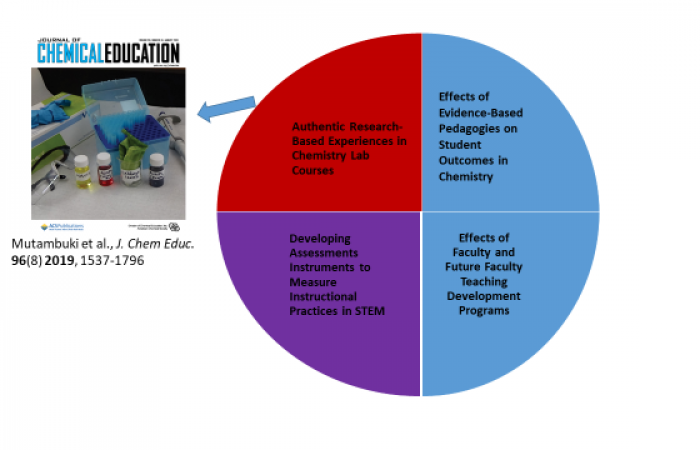Research Projects Summary
Research Description
High attrition in science, technology, engineering, and mathematics (STEM) disciplines remains a national concern. Consequently, many reports have projected a significant shortage of qualified workforce in STEM fields in the United States in the 21st Century. Reports from the national science foundation (NSF 2016, 2019) on science and engineering labor also have consistently indicated underrepresentation of women and minority ethnic groups (URMs) in sciences and engineering workforce. Reported factors for attrition in STEM disciplines include, but are not limited to: poor grades; students’ lack of interest in STEM disciplines; use of instructional practices that focus on verification of scientific facts and rote memorization; internalization of stereotype threats; and a lack of sense of belonging in specific STEM domains. Dr. Mutambuki’s Research Lab seeks to improve undergraduate Chemistry and General STEM Education by addressing the aforementioned factors. Her primary research projects involve:
1) assessing the effects of various evidence-based/inclusive teaching classroom practices on students’ cognitive and affective outcomes in chemistry;
2) integrating authentic research-based experiences into the undergraduate chemistry laboratory courses, and assessing the impact on student learning and persistence in chemistry and other STEM disciplines;
3) developing and validating tools for assessing classroom instructional practices in STEM classrooms;
4) developing teaching-development (TD) programs for STEM faculty and future faculty, and K-12 teachers on evidence-based and inclusive teaching practices, and assessing the impacts on student learning and instructional practices; and
5) diagnosing student barriers to meaningful learning of chemistry at college level.





